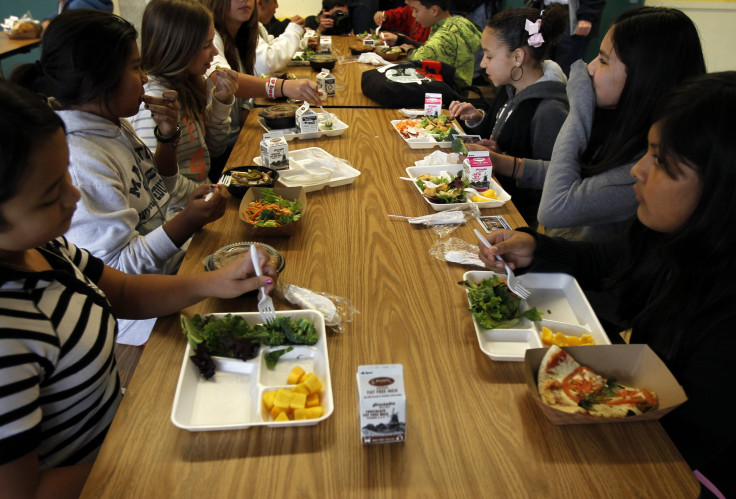School Nutrition 2014: Healthy School Lunch Program's Grain, Salt Standards To Change Under Congress Spending Bill

The government may avoid a shutdown, but schools can't escape healthy lunches. Congress' year-end spending bill released Tuesday rejects Republicans' requests that schools be able to opt out of nutrition regulations.
The bill does allow schools to temporarily put off implementing U.S. Department of Agriculture grain standards if they can prove they've had trouble finding or affording whole grain products, the Associated Press reported. The 2012 regulations required that starting this school year, all grain products offered by cafeterias had to be "whole grain-rich." That means all bread, pasta, cereal, oatmeal and tortillas had to contain at least 50 percent whole grains.
Cafeterias complained, saying the rule was expensive and limited their options. In the lead-up to the year-end spending bill, the GOP fought alongside them, asking that schools be allowed to break the rules for a year.
The bill announced Tuesday enables this, which means First Lady Michelle Obama likely won't be happy. Obama has made school nutrition her pet project since 2010 and said earlier this year that Republicans' efforts to delay the standards were unacceptable, CBS News reported.
The legislation also asks for more research on the health benefits of grains as well as salt standards. It pauses rules that would require schools to reduce sodium in their meals and snacks "until the latest scientific research establishes the reduction is beneficial for children."
The School Nutrition Association was satisfied with the bill, as it had pushed for the grain and salt reauthorizations. Its CEO, Patricia Montague, said in a statement that the 2012 regulations made kids not like cafeteria food. "Since the new standards took effect, 1.5 million dissatisfied students have given up on school meals, taking their lunch money with them," she said. "The financial impact is crippling some school meal programs and limiting their ability to invest in the kind of innovative, appealing menus that can entice students back to the cafeteria."
© Copyright IBTimes 2025. All rights reserved.






















